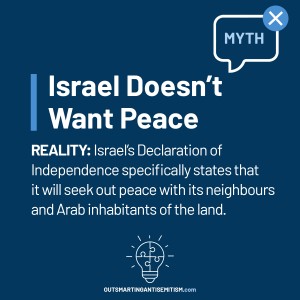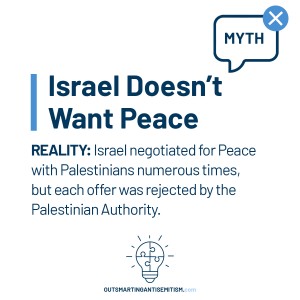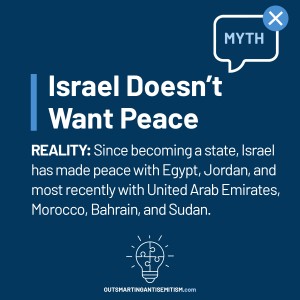For almost the entire history of political Zionism, Jewish leaders have sought peace with their Arab neighbours.
Israel’s Declaration of Independence clearly states that Israel will extend a hand to all neighbouring states in the spirit of peace and good neighbourliness, and also seeks peace with the Arab inhabitants of the country.
After the Six Day War, Israel sought to use its territorial gains in a “land for peace” negotiation, which was promptly rejected by the Arab League. After Egypt launched its Yom Kippur War, Israel still welcomed a peace agreement with the Egyptians, which led to the Israel-Egypt peace agreement in 1979. In 1994, Israel made peace with Jordan, in the midst of its peace negotiations with the Palestinians via the Oslo peace process.
Israel has always sought peace with its Arab neighbours. Whenever an Arab country has suggested a possibility of normalizing relations with Israel, Israel has jumped at the opportunity, most recently in 2020 with the Abraham Accords, which saw Israel establish diplomatic relations with countries like the United Arab Emirates, Morocco, Bahrain, and Sudan.
Golda Meir once quipped that, “If the Arab armies put down their weapons, there will be no more war. If Israel puts down its weapons, there will be no Israel.” Israel wants peace, both for its own sake, and also for the region, and one can only hope that the momentum of the Abraham Accords will see Israel forge lasting diplomatic ties with even more Arab and Muslim-majority countries.
Myth: Israel Doesn’t Want Peace



